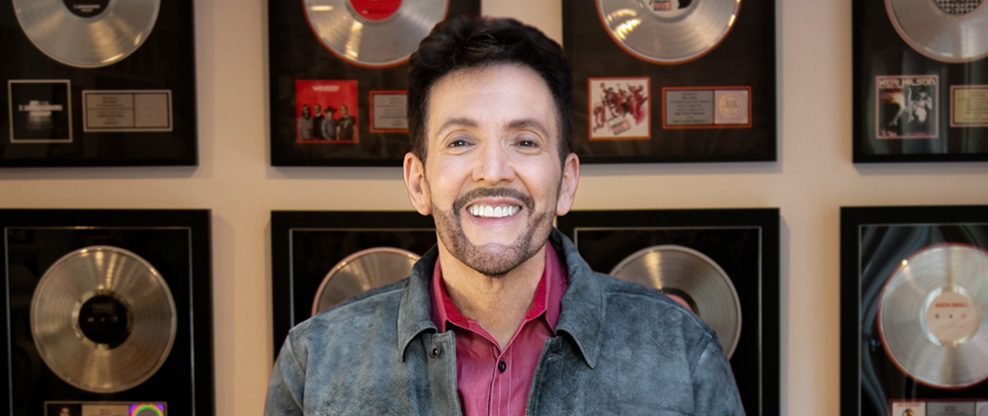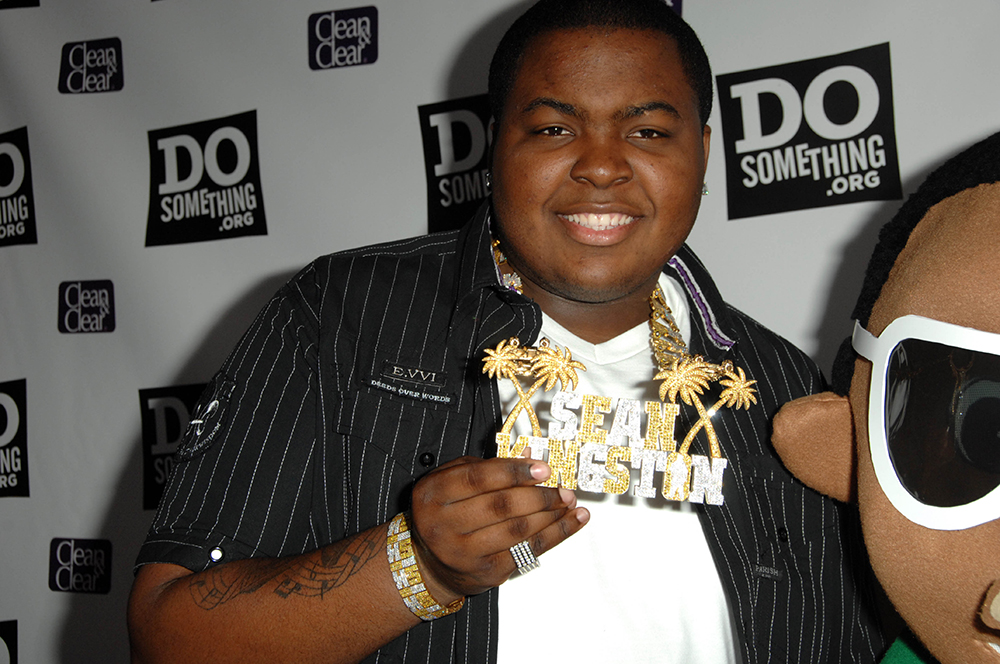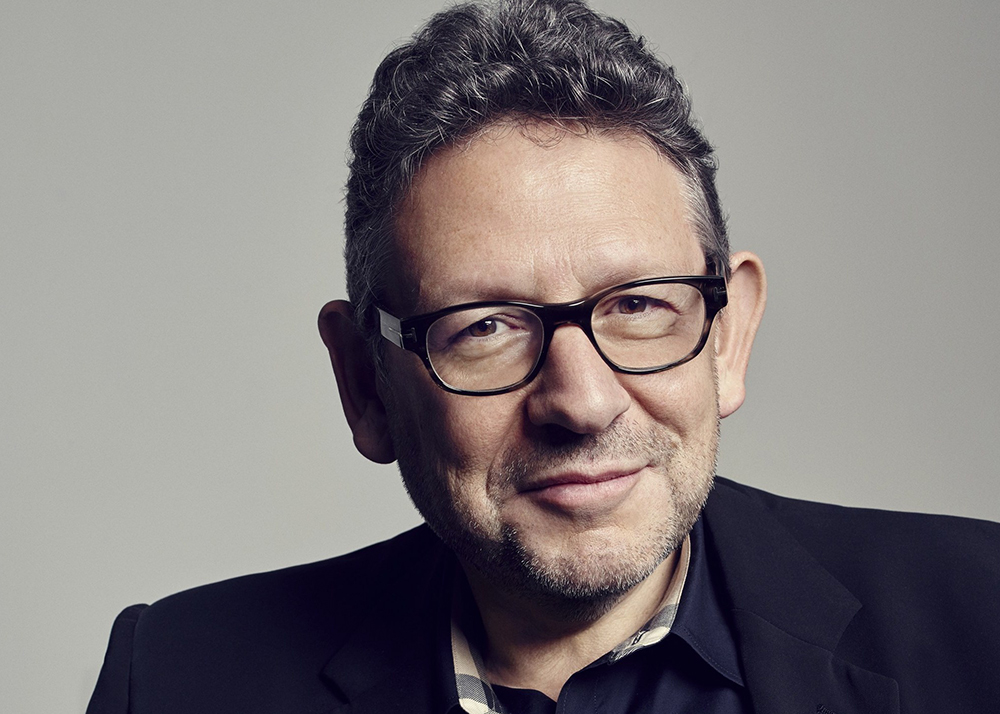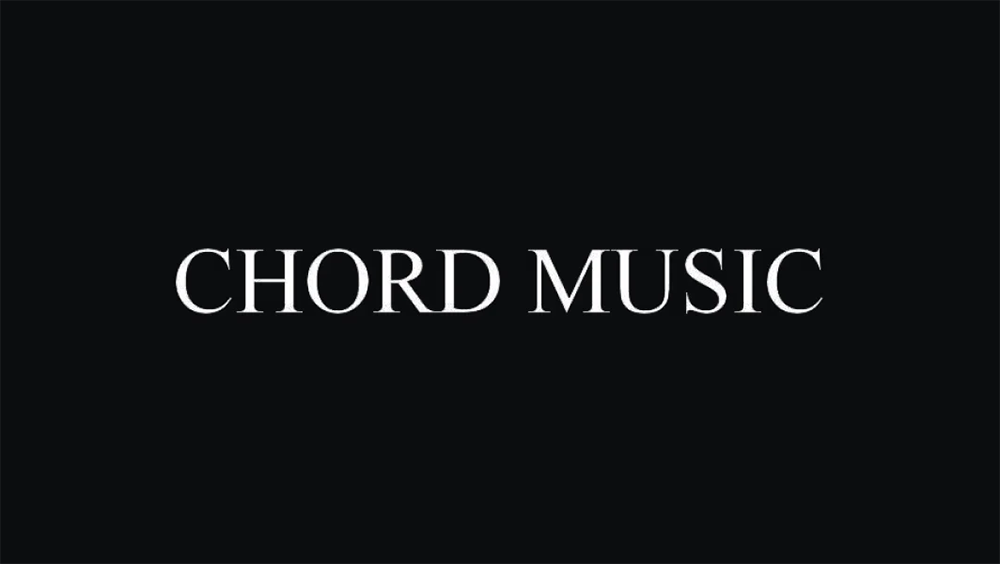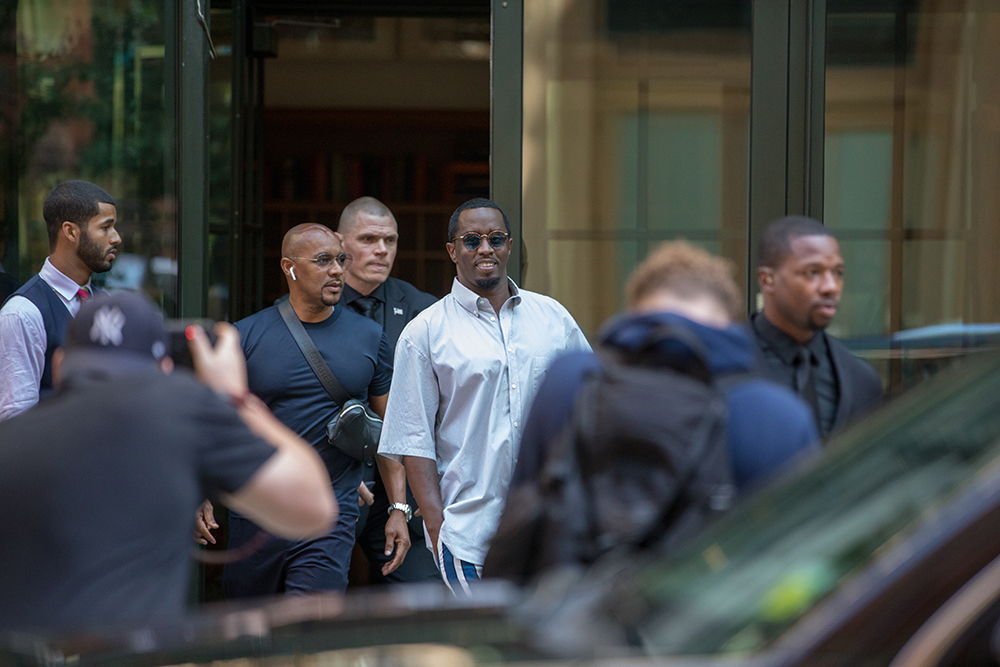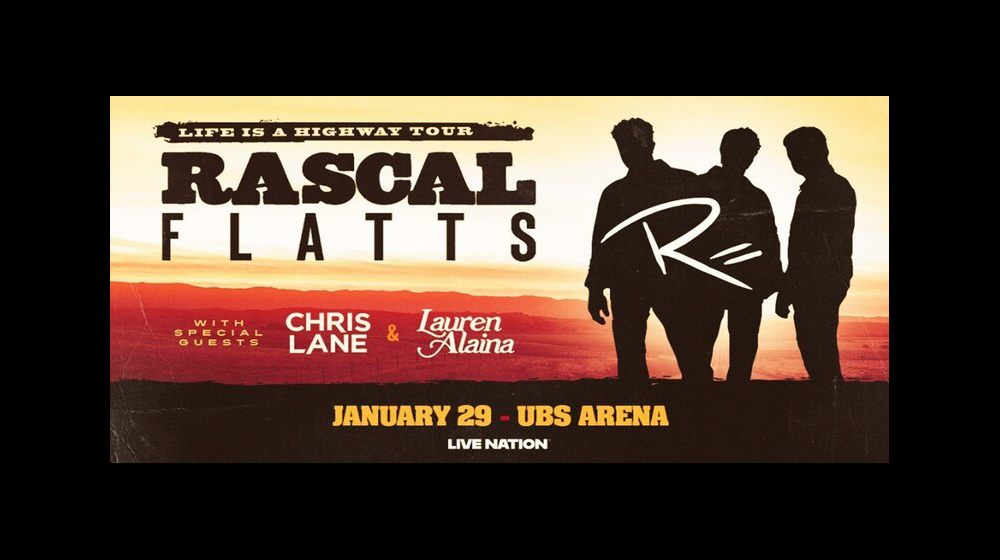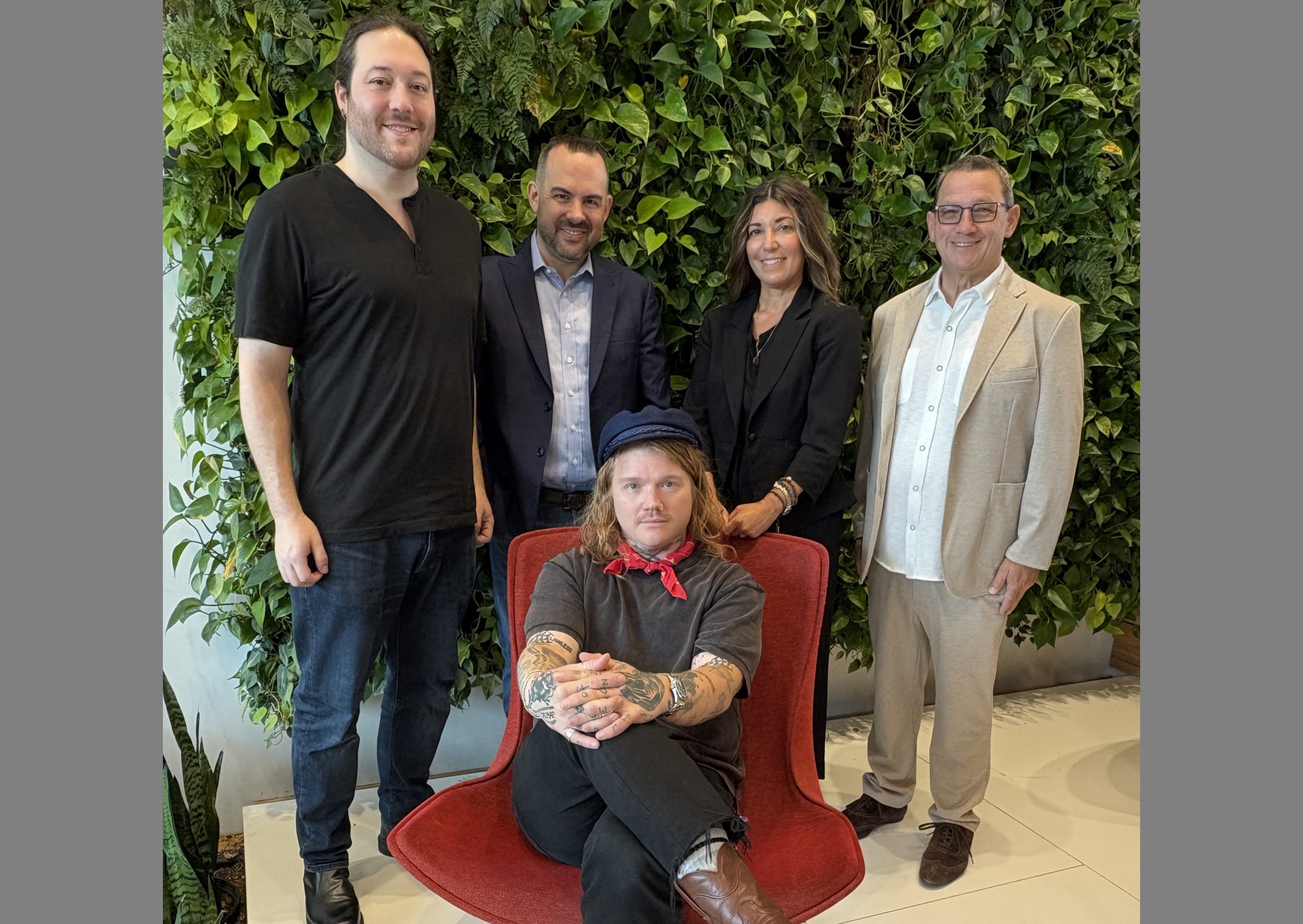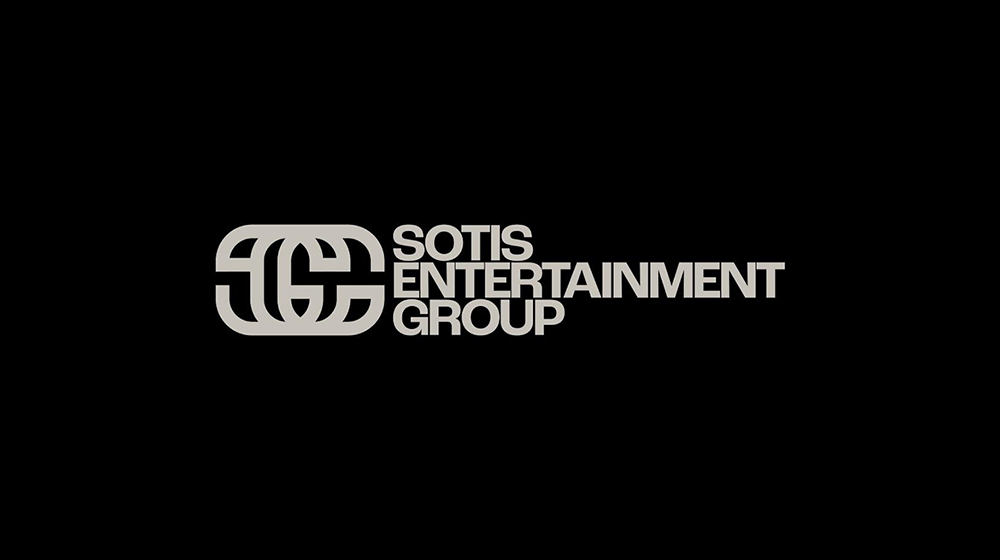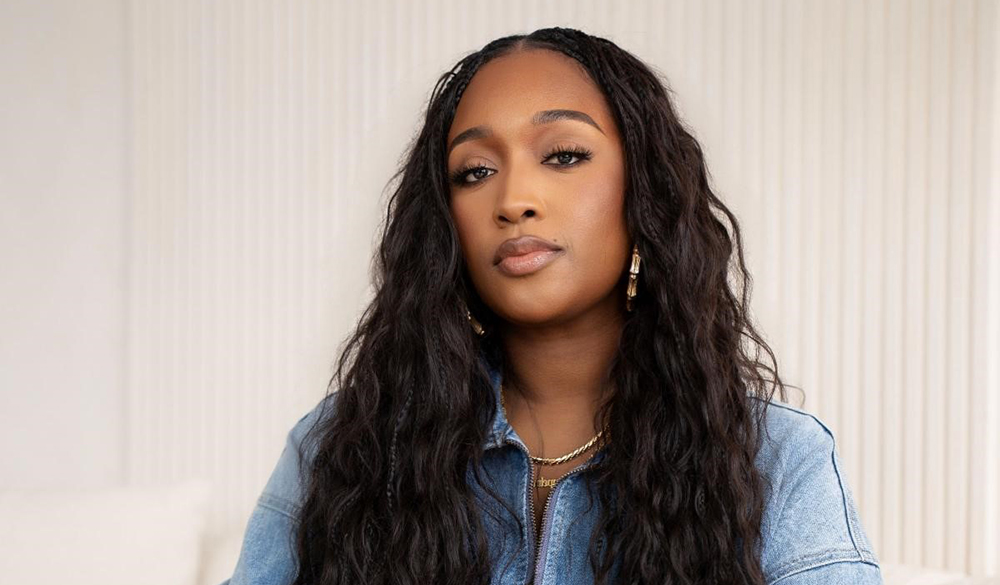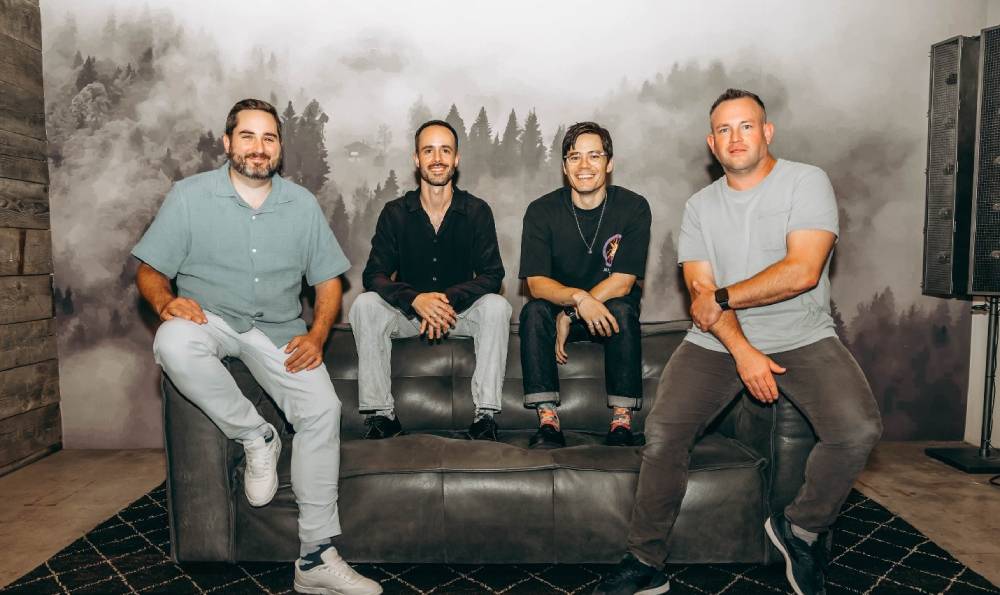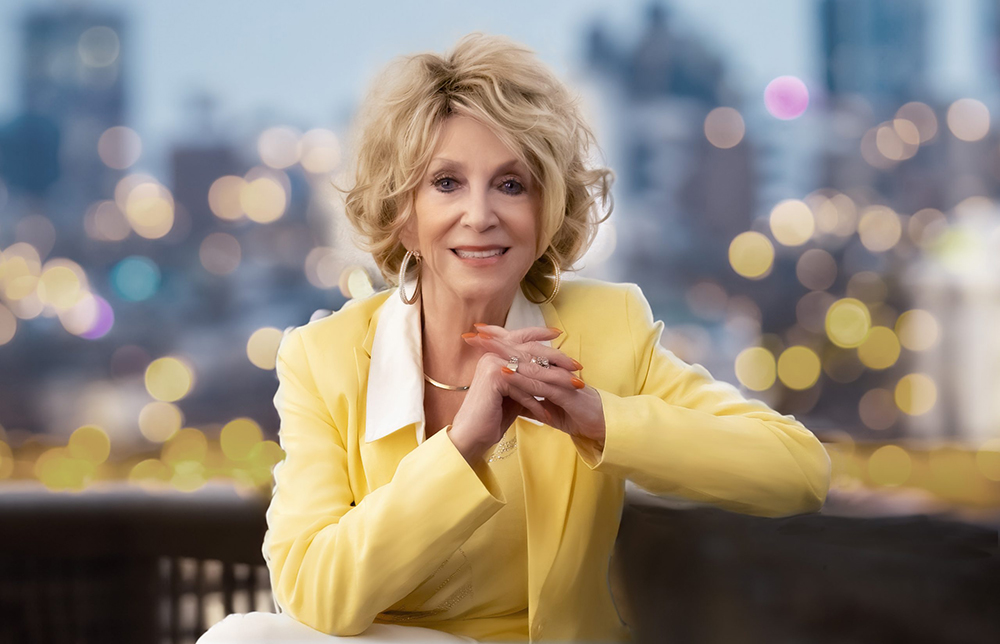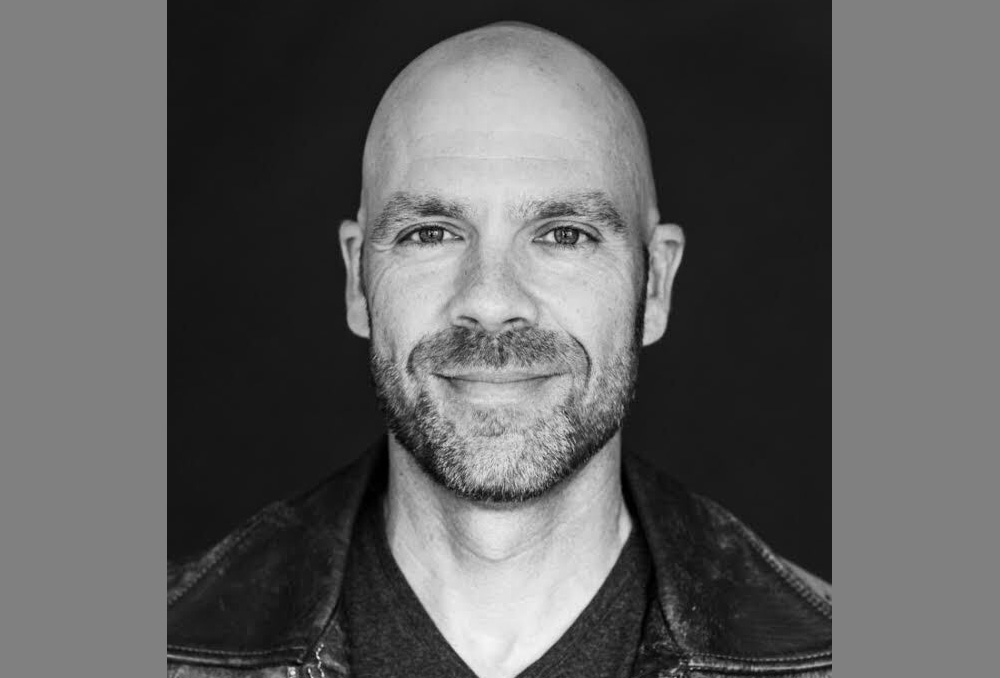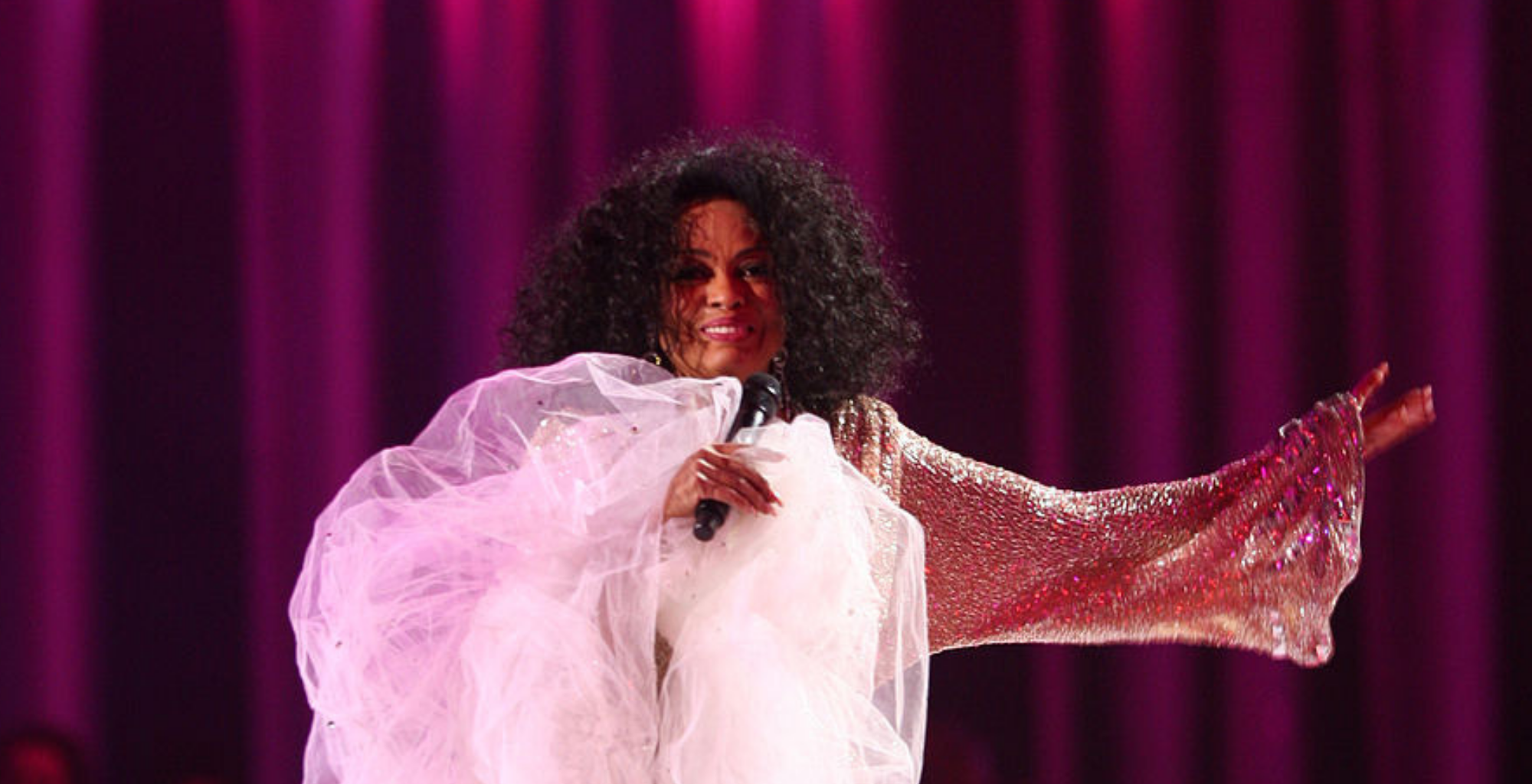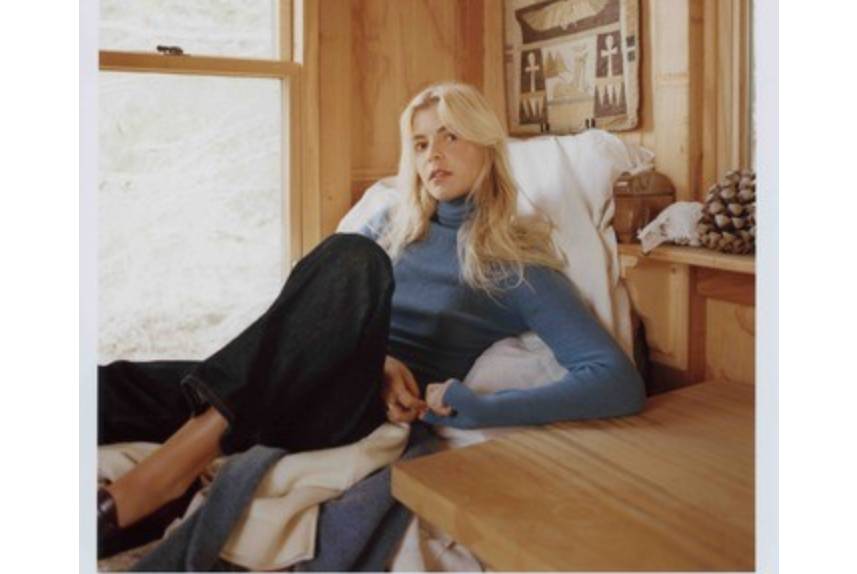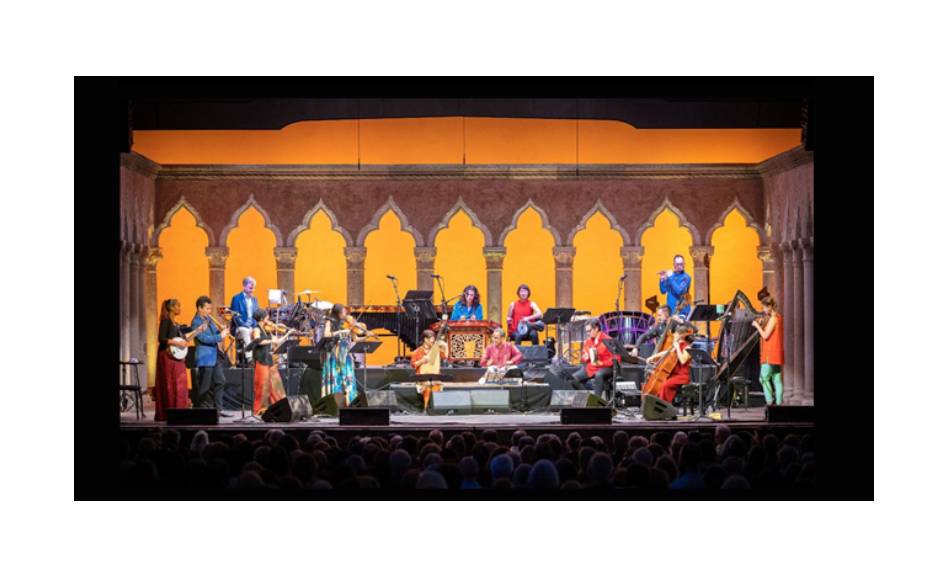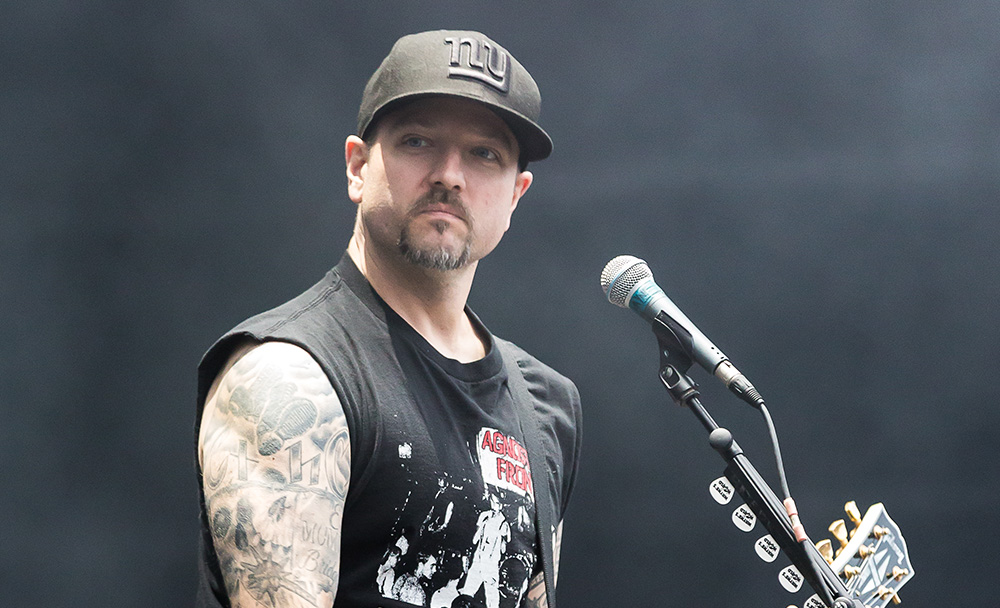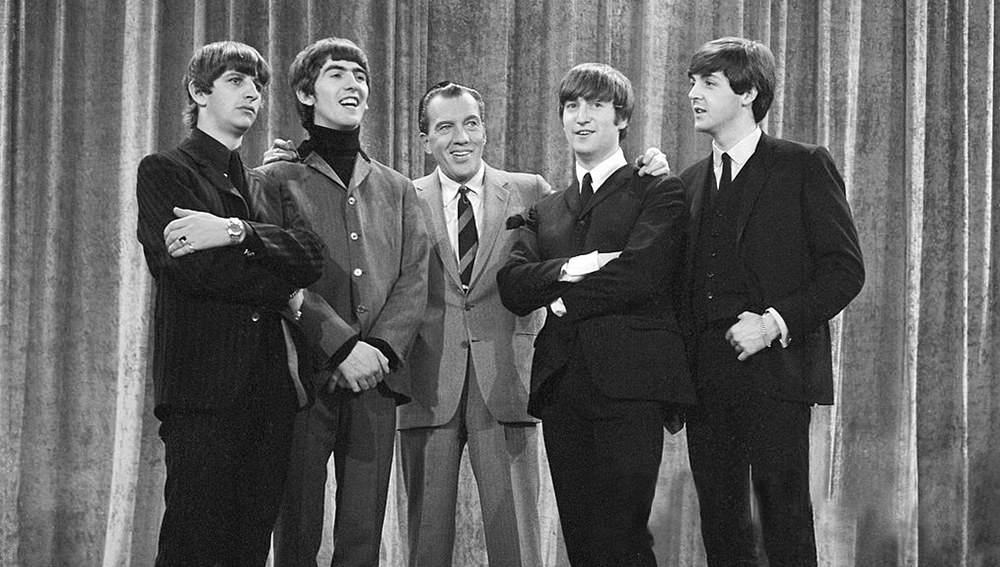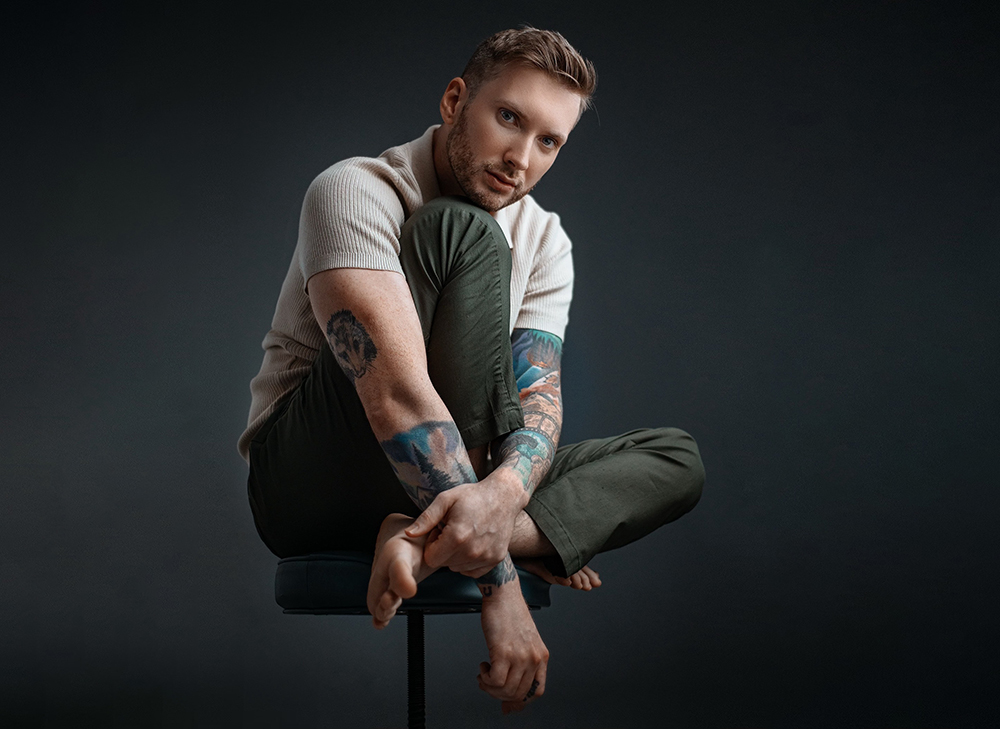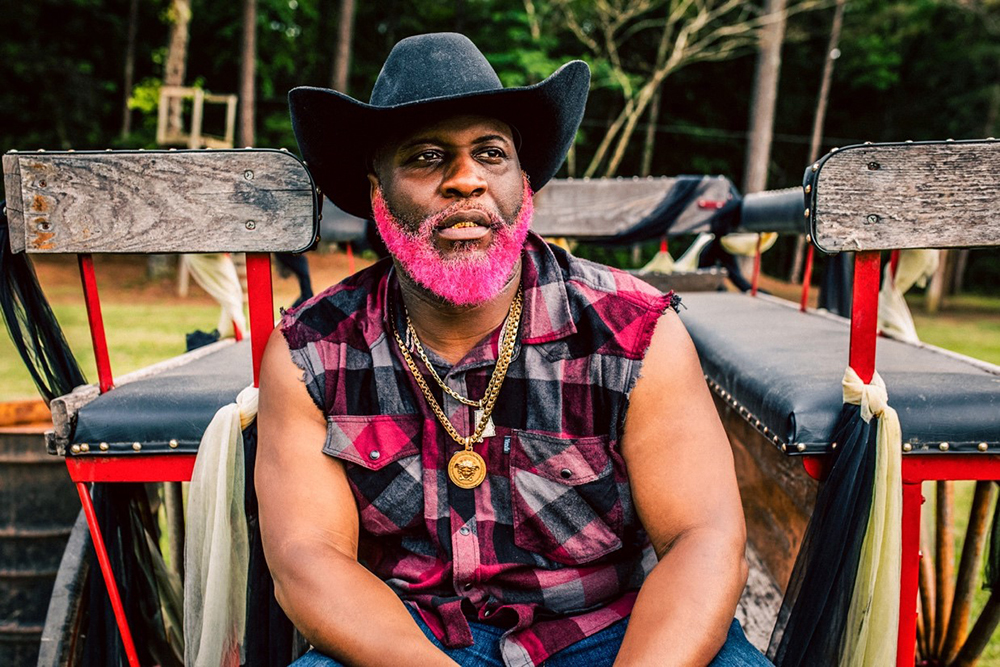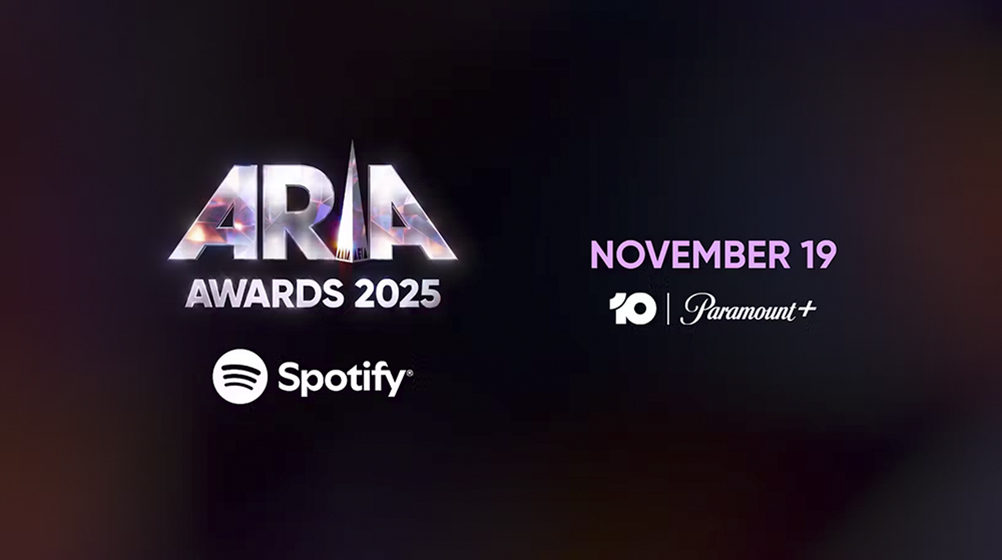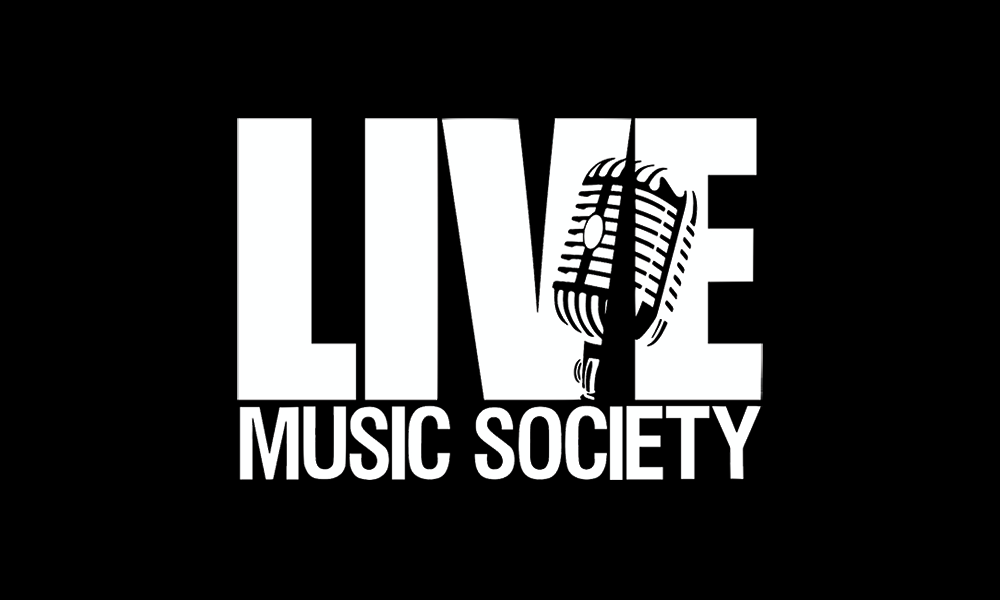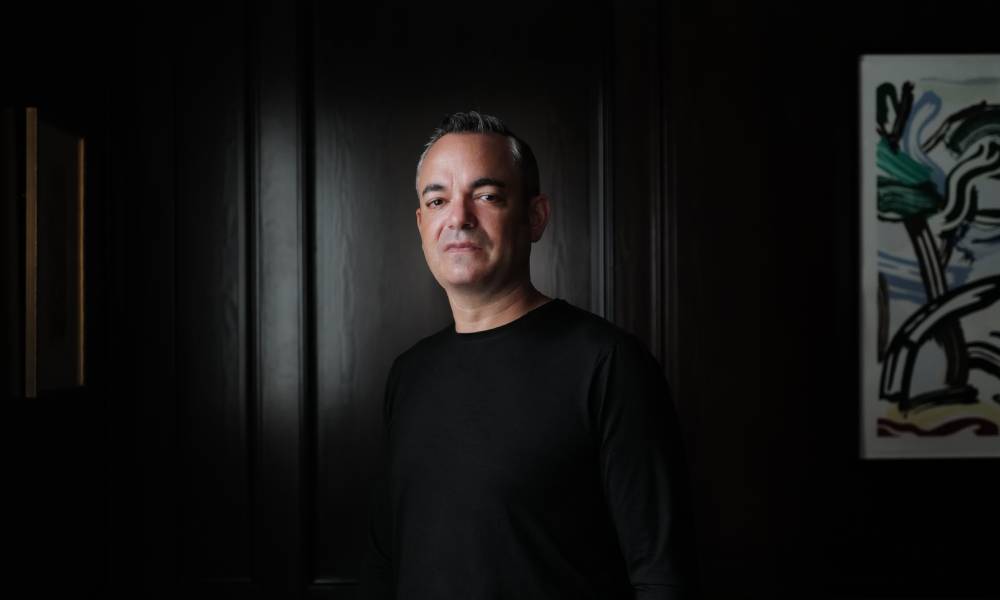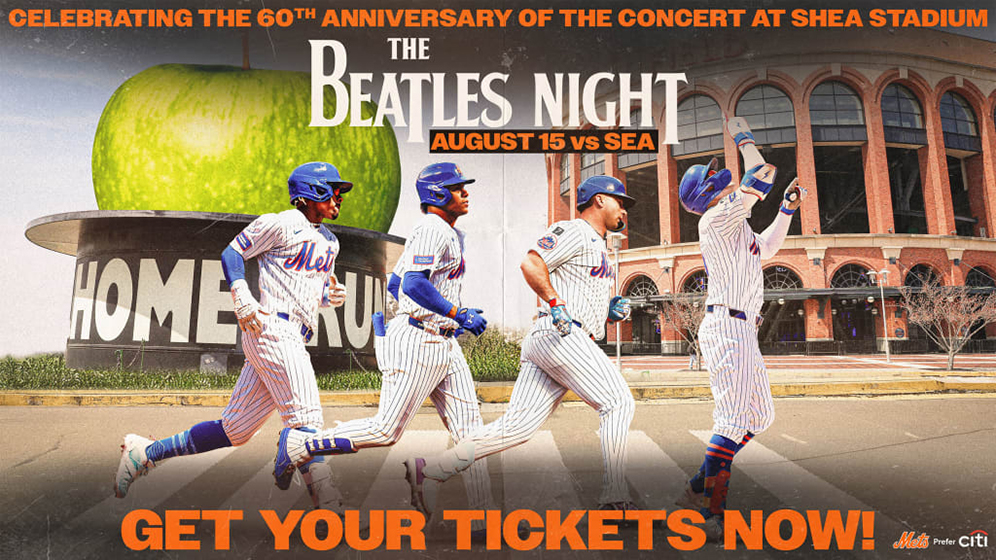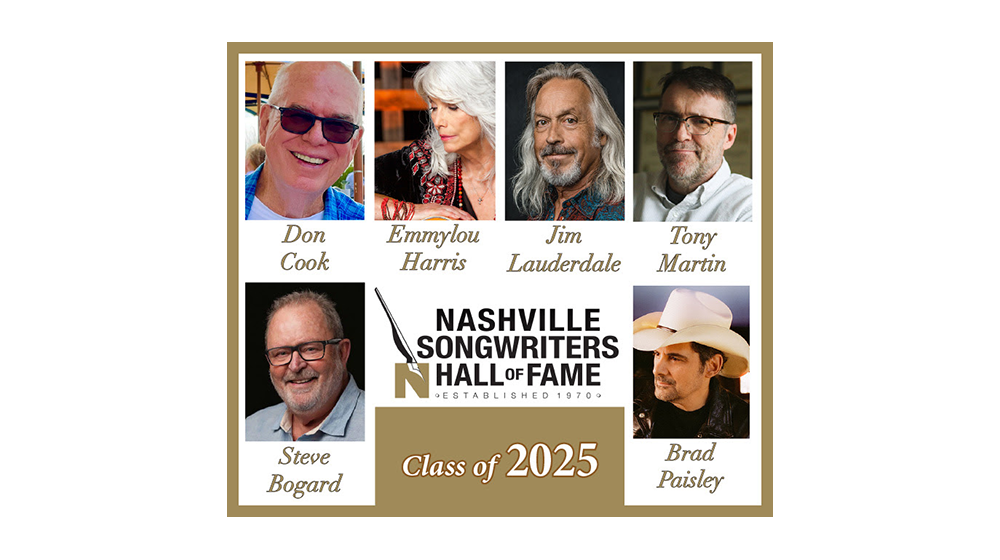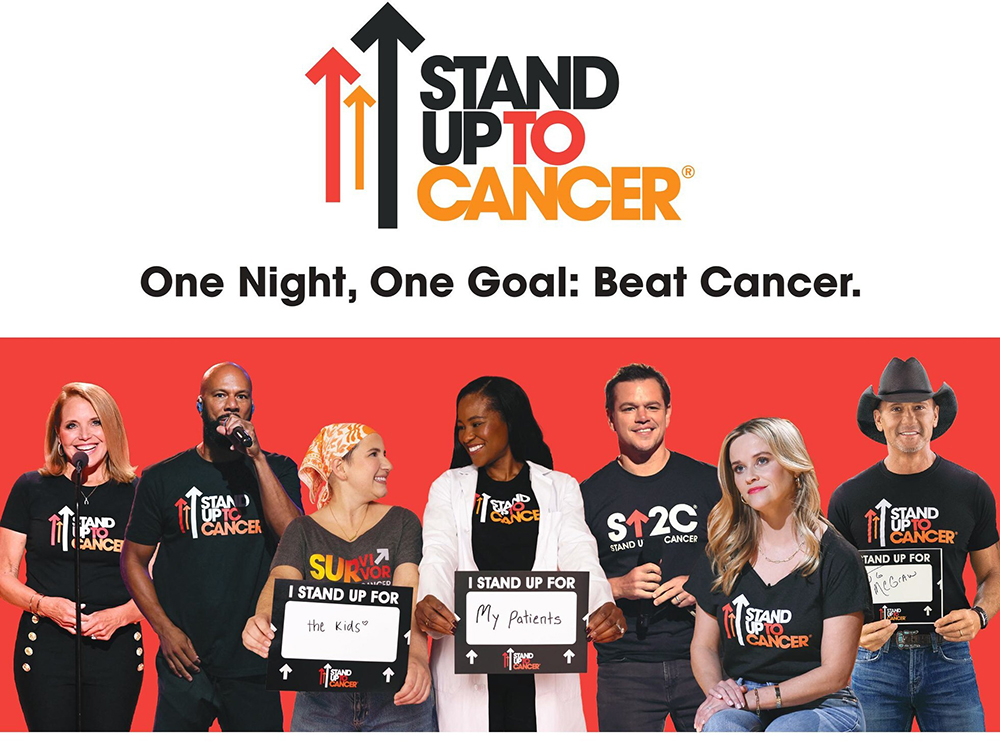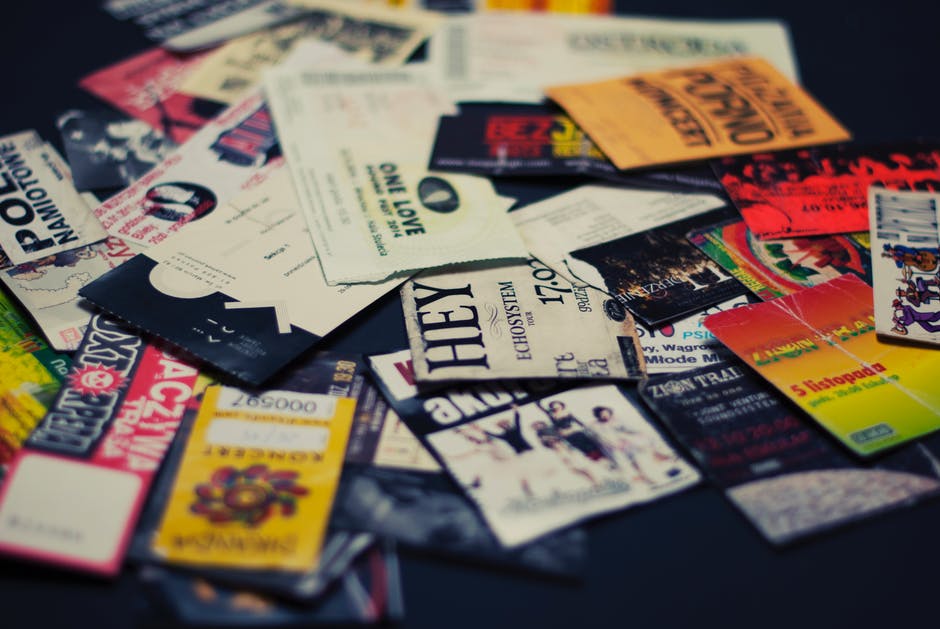This week In the Hot Seat with Larry LeBlanc: Celebrity Vocal Coach Eric Vetro.
Eric Vetro is an immensely talented, intelligent, and original master voice specialist who acts like he’s still in high school.
From his home and studio tucked into the L.A. neighborhood of Toluca Lake, north of the Hollywood Hills, this Pied Piper of Hollywood Song is one of the most sought-after vocal coaches across the domains of music, theater, and film.
With his unprecedented roster of valued celebrity clients, Vetro’s measured insights in his private lessons are authentic and pure, having a profound influence on young talent.
He has also developed deep connections with many of his clients by instilling in them a conviction that if they work hard, and do their best, they will most likely achieve their set goals.
For many of them, Vetro—who hasn’t had a vacation since 2008–was a principal motivating force in their choice of career.
Ariana Grande and Victoria Monét joyfully name checked him in their raucous 2019 duet “Monopoly,” throwing out, “I never track my vocals, so shout out to Eric Vetro (I love Eric Vetro, man).”
Vetro has coached other prominent pop stars like Shawn Mendes, Katy Perry, Pink, Camila Cabello, Becky G, Ellie Goulding, Sofia Carson, Rosalía, Bebe Rexha, Omar Apollo, Dominic Fike, and early on Meat Loaf, and Bette Midler.
Recently, he coached Grande for her “Wicked” film; Angelia Jolie for the “Maria” Callas biopic; Austin Butler for “Elvis”; Nicholas Galitzine for “The Idea Of You”; Timothee Chalamet for both “Wonka” and his performance—along with Monica Barbaro—in the upcoming Bob Dylan biopic, “A Complete Unknown.”
He tutored Will Ferrell for “Step Brothers” “Eurovision Song Contest: The Story of Fire Saga,” and “Spirited”; John C. Reilly for “Walk Hard: The Dewey Cox Story”: Ryan Gosling and Emma Stone for “La La Land”; Jacob Elordi for “Priscilla”: Eve Hewson for “Flora and Son,” and Renee Zellweger for her Academy Award-winning performance in “Judy.”
He has also worked with such actors and singers as Hugh Jackman, Kristin Chenoweth, Lea Michele, Marissa Jaret Winokur, Sean Hayes, Vanessa Hudgens, Laura Marano, and Dove Cameron.
Of late, he’s been training Jeremy Allen White for his on-screen singing debut playing Bruce Springsteen in “Deliver Me from Nowhere,” which will chronicle Springsteen’s journey towards completing his 1982 album “Nebraska.”
Vetro is the host of the most interesting musical podcast, “Backstage Pass with Eric Vetro,” on Pushkin Industries where he talks with his celebrity students about developing their voices, building their careers, and dealing with the stresses of fame.
He was recently tapped by BBC Maestro, the premier online learning platform, to join its roster of world-class experts.
His BBC Maestro’s “Sing Like the Stars” course is an 8-hour series of videos featuring advice from such star students as Carpenter, Legend, and Winokur.
“This is my safe space,” Carpenter exclaims in a video promoting the Maestro program. “I feel very happy when Eric is around.”
From the town of Gloversville in upper New York state. Vetro received his Undergraduate and Master’s degrees in music education, and voice at New York University.
Your BBC Maestro’s “Sing Like the Stars” course consists of 29 lessons.
I cannot tell you how thrilled I am about that. It is such an honor. When they called me, before they even told me anything about it, in the back in my mind I was thinking, “When do I say, ‘Yes?’ Do I say it right now? Do I act nonchalant? Should I try to be cool, and wait for them to sell it?” I couldn’t hold back very long. I was really interested. I really wanted to do this.
Since its launch in 2020, BBC Maestro has produced more than 200 hours of educational content from leading voices in various industries including business, music, art, books, and design. The series is accessible online on Spotify UK, and through the BBC Maestro app, and in-flight with British Airlines.
Among the 40 luminaries featured in the BBC Maestro series are: Songwriters Sir Tim Rice, and Barry Barlow; authors Ken Follett, Isabel Allende, and Lee Child; actor Brian Cox; comedian Billy Connolly, as well as Mark Ronson on music production, and Bill Lawrence on TV writing.
They told me the others who had done it, and I was like “Stop. You don’t have to tell me anyone else. I’m in.” And I am thrilled. Most of the courses are 4 ½ hours. For mine, I put in hours and hours of vocal exercises. It’s huge. A really big course running around 8 hours.
What’s most interesting about your client history is that you started working with many notable celebrities when they were unknown, and very young.
Yeah, a lot of them. First of all Larry, not everybody has this many (clients).
Ariana Grande was very young when you began working with her.
I met Ariana when she was 13 or 14 tops. I started working with Sabrina Carpenter, giving her lessons, when she was 12 (and she arrived for her first lesson chaperoned by her mother). Shawn Mendes was around 15. Camila Cabello was 14 or 15.
You’ve worked with so many showbiz prospects in building up their vocal skills from the ground up.
Well, I ‘d like to think that I was able to help them. That it is partly why they achieved some of their success. That sounds so arrogant. I don’t mean it to. I just think that I was able to help them. I also think that I had some really strong support. You know what happens when you’ve got good word of mouth. For example, Ariana’s mother (Brooklyn-born Joan Grande, CEO of Hose-McCann Communications, a family-owned manufacturer of marine communications equipment) didn’t want her (daughter) to take lessons. She was nervous that it was going to take away from her natural skill and ability.
Ariana was immensely talented right from the very beginning.
Her mother said to me, “I have always been nervous about her taking lessons because I thought it would take away from what she does already; or maybe it would take her down the wrong path.” Ariana had taken one voice lesson with someone, and she thought it was too operatic.
Then they heard a young boy, Graham Phillips, who I had been working with. They were in the Broadway show “13” together (in 2008). The year before it went to Broadway, they did a summer pre-production out of town for a couple of weeks at the Goodspeed Opera House outside of New York (in East Haddam, Connecticut.) A lot of things start there (including “Annie,” “Man of La Mancha,” and “Shenandoah”) It’s a small theatre. So they did a pre-production in the summer, and they just loved the way that Graham sounded. Graham said, “Well Eric is my voice teacher. He’s been my voice teacher since I was 9.” Then near the end of that year they went to Broadway.
So that is when I met Ariana. She had met Graham. He was her first boyfriend. When I started working with Ariana she was still living in Boca Raton (Florida), and we would do (lessons) over Skype.
“13” is the only Broadway musical ever with a cast and a band entirely made of teenagers. It was first done at the Mark Taper Forum (in Los Angeles) with a different cast earlier (in 2007). The later “13” began previews on September 16, 2008. and officially opened on Oct. 5th, 2008 at the Bernard B. Jacobs Theatre in New York. The production closed on Jan. 4th, 2009, after 105 performances.
Ariana went on play Cat Valentine on Nickelodeon’s “Victorious” (2010–2013), and its spin-off series “Sam & Cat” (2013–2014.
So I started working with Ariana before she was on Broadway over the phone on Skype. She was either 13 or 14 years old. So when her family moved to L.A., they first lived in Hancock Park, and then they lived literally five minutes from me in Toluca Lake, I would see her sometimes five times a week for lessons.
As you know Eric towards the end of filming “Wicked,” the untold musical story of the witches of Oz, last year, Ariana recorded her first album in four years, “Eternal Sunshine,” which spent two weeks at #1 on the Billboard 200.
The first film version of “Wicked,” was released this month (on Nov. 22nd) in North America, and the U.K., and will be followed by the second part dropping Nov. 26, 2025.
Variety’s Katcy Stephen hailed “Wicked” as a “masterpiece,” adding: “Ariana Grande makes Glinda sparkle: she milks every moment with gusto, humor and hair flips.” Gregory Ellwood at The Playlist called Ariana’s performance “a beacon of light,” noting that, (she) “often delivers startling depth to her character before jumping into a musical number that will have you grinning from ear to ear.”
Ariana is candid about wanting to return to Broadway “It is my heart,” she said on a recent podcast “I’m always going to make music, I’m always going to go on stage, I’m always going to do pop stuff. But I don’t think doing it at the rate I’ve been doing it for the past 10 years is where I see the next 10 years.”
In the conversations with you and your celebrity clients on your music podcast, Backstage Pass, you talk to them about what is going on in their personal and professional lives as you retrace their vocal journeys, from the very first song they ever sang, through the challenges they face in the spotlight.
With Ariana, in particular, I learned more about her personal life on your taped exchanges than any interview I’ve come across.
Many of your clients acknowledge that it is a challenge to balance their careers and learn their craft at the same time. That they must learn from their mistakes, and it takes a lot of time. And it’s tiring because there’s never rest.
Obviously, in coaching these talents you have to get beyond their protective public persona to be effective in helping them with their voice.
I try to get to know them really well. I want them to know that it’s a safe place so they can confide in me. If they have done something that is not great for their voice, if I know they were out drinking and partying, I will know how their voice is going to be. That I am going to have to work in a certain way today to help them.
Like one person told me one time about attending the Teen Choice Awards, and she was like, “I’m going to be honest with you. I was up to three in the morning. This is what I drank, and what I smoked,” blah blah blah. I said, “I am glad you told me. You have to stay extra hydrated. I am going to start slower without a warm-up, go easy, and we are going to break it (the lesson) into several different ones, instead of one big one.”
So once I get to know them, and they trust me, then it really informs me how I’m going to teach them and help them best. I am never there to judge them, and I certainly don’t care about getting in on their personal life, but I want to know their personal life in order to help them.
Why become so deeply personal?
Well, I do think it is directly related to their voice. I always want to get to know everybody so I know where they are coming from. Some people appear very confident, but then when you get into a more intimate conversation and you allow yourself to be vulnerable, they allow themselves to be vulnerable; you might find out that they have no confidence in their voice; and the brassiness is trying to cover up what they really feel about themselves. And each aspect of that helps inform me what I need to do to help them.
Some people need a firmer hand.
So I will say, “Hey, if you want to do well, then you are going to have to practice more. You just going to have to.” Or whatever it is that I determine that they need to hear. With other people I have to do it in a much more subtle way. I have to be a lot more sensitive. I have to be careful about how I approach them. I have to be careful with the critiques I give them.
Many voice teachers are known for relying on a rigidly exact way of teaching voice to all. As a result, many of their students sound similar vocally. By contrast, you identify what traits clients possess, what is distinctive about them, and what goals are achievable.
When I hear a teacher say, “I teach the ‘so and so’ method,” whatever it is, I get very suspicious of how I think they will be as a teacher because you cannot stick to one technique with every single person. It won’t work with every person. I started playing piano when I was so young, and I used to play a lot of voice lessons for other voice teachers. I was mainly doing it because I wanted to see how other teachers were teaching. I learned so much from doing that. What I saw a lot of times was that if someone (a teacher) stuck to one technique, they would have a few really good students, a few mediocre students, and some not very good. I realized at an early age that you just cannot do it (teach the same way). Everyone is unique. It’s like putting the same clothes on every single person, and the same shoes.
So I try to have everything that I do to be for the person. The uniqueness of that person. My feeling is that whatever is a unique quality about their voice or something special, even if it is an accent—a lot of people say, “I guess I should get rid of my accent.” I go “No, you want someone to know the minute that they hear your voice it’s you. You don’t need to sound like anyone else.’
Many teachers also concentrate exclusively on the singing voice while ignoring a student’s speaking voice. and how it sounds. To me the speaking voice is important to an entertainer. I’m impressed that for many of your clients you bring in a dialect coach to speak through the lines of a song as if it’s a monologue.
Yep, absolutely. Also focusing on who do they want to be as an artist? What is the image that they want to have? How do they want to present themselves? What do they want the audience to walk away with?
All of those things go into it.
I always want to know everything. I’m always asking people a million questions. I will ask,” How do you want to be?” Or I will say, “What artists move you?” Or “What artists do you feel you are going to be in their lane?” I’ve worked a lot on movies with people who have to sound like someone they are portraying. For example, Austin Butler for “Elvis” (2022), Renée Zellweger for her (Academy Award-winning performance of the 2019 biographical film) “Judy,” and recently Timothée Chalamet playing Bob Dylan in the movie “A Complete Unknown,” coming out at Christmas (on Dec. 25th).
“A Complete Unknown,” based on Elijah Wald’s 2015 novel “Dylan Goes Electric!: Newport, Seeger, Dylan, and the Night That Split the Sixties,” stars Timothée Chalamet (as Dylan), Edward Norton (as Pete Seeger), Elle Fanning (as fictional girlfriend Sylvie Russo, inspired by Dylan’s real-life former girlfriend and muse Suze Rotolo), Monica Barbaro (as Joan Baez), Boyd Holbrook (as Johnny Cash), Dan Fogler (as Albert Grossman), Norbert Leo Butz (as Alan Lomax), and Scoot McNairy (as Woody Guthrie.
To prepare for a film, I know that you and each of your clients seeking to portray a well-known performer will scan hours and hours of filmed live performances to identify the definable aspects of the artist’s delivery, posture, tone, style, personality, and even pronunciation.
From the trailer I saw of “A Complete Unknown,” Timothée’s rendition of “A Hard Rain’s A-Gonna Fall,” is exactly right.
For the film you also worked with Monica Barbaro who portrays Joan Baez, a noted soprano with a three-octave vocal range, and a distinctively rapid vibrato.
Yes, and I would talk a lot to Monica about that. “Why do you think her voice is so strong? Why do you think she sang with such a strong energy?” And we would go through the reasons. “Was it because she felt like that was her gift? Was it because someone encouraged her to do it because she was influenced by somebody who did it?”
Why are such questions pertinent to the vocalization process?
I always try to find out what the person is going through, and how they want to present themselves. Some people get that complex, “Oh, the little girl with the big voice.” And then they carry that through their whole life. Some of those girls I’ve had to say, “You are not the little girl with the big voice anymore. You can’t be shouting everything. You have to sing with more nuance than that.” I try to tailor everything that I am doing to their voice, how they see themselves, and what it is that they want out of their career. What kind of music do they want to do because there are so many different genres of music. So I try to go with all that.
People have said to me, “My teacher told me (to do) opera because if you can sing opera, you can sing anything.” I used to be as little more polite about it (commenting), but now I say, “That’s complete bullshit. If your voice is overly trained to be operatic you can’t sing anything but that. You’ll sound ridiculous singing a pop song with an operatic sound.’ That is just not true that you can sing anything. That doesn’t mean you can scat that. That doesn’t mean that you can hear harmonies. That doesn’t mean any of those things.
Some maintain that singing opera is straightforward, but Angelina Jolie in preparing for the Pablo Larraín-directed Maria Callas biopic “Maria,” she underwent 7 months of singing opera.
Angelina is someone who started her training with American director, actor and acting teacher Lee Strasberg when she began in theater so she’s nothing less than fearless after preparation in portraying the iconic Maria Callas in the last days of her life before she died of a heart attack at age 53 in 1977.
I know that because I was her teacher.
Angelina recalled her first day of singing lessons for the film at the AFI Fest screening of “Maria” saying, “I walked into room with the piano, and somebody said, ‘Ok, let’s see where you’re at.’ And I got really emotional. I took a big deep breath, and I let out a sound, and I started crying. I think we don’t realize how much we hold inside our bodies, and how much we carry and how much that affects our sound and our voice and our ability to make sound.
Of course, it takes opera singers years, if not a lifetime, to perfect not only their sound, but also the ability to control their breathing.
As Angelina discovered, there’s something primal about finding your own voice within your own body, and there’s no way to sing at your full voice and your full emotion without confronting your feelings, and your limitations.”
As she said in an interview, “I’ve been holding a lot for a long time, and that beginning and that sound, and then when that sound would eventually come, it was the best therapy I’ve ever had. Honestly, I think I would tell a lot of people before you try therapy and spend too much time there, go to singing class.”
Well, here’s the thing, I assembled a team of people for her lessons. I couldn’t really demonstrate what Maria Callas would sound like. Nobody really can but you still need a woman opera singer to be able to show her (Angelina) certain things and do certain things. So I hired two opera singers. One went to Europe with her when she was recording, and then there was a man who was a voice teacher, and had been in the opera here in L.A. He was really good at helping her pronounce the words.
I have to tell you that Angelina learned every single note of every single aria, every single syllable. It was pretty impressive. And she’s not really lip-syncing. She’s singing, and they blended the voices together, but she is singing. She was singing all of those notes. It was an amazing transformation from the day I met her to the day I said, “Goodbye, good luck in Europe.” It was pretty amazing.
“Maria” had its world premiere at the Venice Film Festival in August. It played in select theaters starting on Nov. 27th and will stream on Netflix on Dec. 11th.
You met Austin Butler when he was 16, through another one of your clients, Butler’s then-girlfriend Vanessa Hudgens. You and Austin stayed in touch over the years before you helped him nail his singing voice for his “Elvis” audition.
His performance in Baz Luhrmann’s “Elvis” (2022), for which he won the Golden Globe, and British Academy Film Award (BAFTA), and was nominated for the Academy Award for Best Actor, is nothing short of amazing.
For the film’s final sequence I couldn’t tell if it was Austin or Elvis performing onstage.
(“Elvis” director) Baz Luhrmann said that at one point too. (Elvis’ daughter) Lisa Marie saw a screening of the movie, and she said to him, “I have to confess to you, I thought that was my father at the beginning of the movie. I had an idea (of him) after seeing all of those songs.”
Do you travel much?
I used to before the pandemic. Then the pandemic came, and I started doing most of my work online. I used to travel quite a bit years ago. Believe it or not, I went to London, I think it was four or five times in the same year with Meat Loaf. We would go from London to Germany, and then back to London. Traveling with Meat Loaf, I loved him. He was such a great guy. I don’t know what he was like when he was younger. I met him when I think he was 58, and he was so great. So empathetic. He always wanted to know about my life. He would sit on the floor and play with my dog. He was always fun to be around. I just had a great time with him. I really enjoyed it. Unfortunately, his hearing was going. He was hard of hearing, so it was hard for him to sing, His pitch was kind of off. He was so unhealthy.
The long-held conventional wisdom about the music industry economy is that touring is where the money is.
As streaming greatly reduced most artists’ royalties from their music over the past decades, it brought about a profound industry shift in that touring became more important than ever.
Yet, despite shows seemingly returning to “normal” for audiences by 2024 following the worst of COVID, what has emerged is that few artists can afford to tour as they once did because road expenses, including for accommodations, lighting, sound crews, flights, transport, and fuel have significantly soared.
The problem with traveling with people (clients) is that it is very expensive as a person because I would say, “Hey, you have to pay me for my 8 or 9 hours that I would be away from home plus the airfare. My back isn’t great so I need first-class airline tickets, and then there’s a hotel, and everything else.
But even though I was getting paid I really didn’t want to do it anymore because then I was missing out on work with so many people. And the beauty of FaceTime or Zoom is that I can work with people in five different cities on the same day, and not miss a beat. I will work with someone in London, and maybe someone will come in for an hour here in person, and then I might do a lesson to New York like when Lea Michele (as Fanny Brice) was doing “Funny Girl” in New York (in 2022). We would do a lesson every single week. Sometimes a couple times a week. But I didn’t have to go to New York to do it. We did it all from here.
How do you work out schedules with celebrities who are working around the world?
Scheduling is the most difficult part of my job. What usually works is that they will schedule ahead of time. But what happens is that a lot of times what I will do is, like with Timothée Chalamet with (Paul King’s musical 2023 fantasy film) “Wonka,” we would do a voice lesson here at my house, then go over to the studio together, and I would stay there for a couple of hours while he was recording.
With Austin, everything was done here at my home. We would do a one-hour session prepping him before he went to Australia to film. Once he was in Australia, I didn’t do it with him anymore. But we did the prep work here, and the audition and everything.
With Angelina, it was two hours at a time. Some times she would come here, some times I would go to her. She was quite close to me. So we just worked it out. I work odd hours because I do it (lessons) on FaceTime, and I do it on Zoom all over the world.
What hours do you work?
I will start at 7 AM PST, and sometimes 5 in the morning to London or to Paris or to Spain. Usually it’s to London. A lot of things happen in London or in New York or Miami because some of the nice ones live in Miami part of the time. Or they will be off on tour all over the place.
So clients come to your home studio in Toluca Lake, or you utilize FaceTime and Zoom from there to work with them
Developed during the silent film era as a luxury development-to-the-stars, the peaceful Toluca Lake neighborhood in the San Fernando Valley north of the Hollywood Hills, has long been popular with celebrities and entertainment executives thanks to its large lots, ample privacy, and its proximity to major film and television studios.
The famous Austrian composer and conductor Erich Wolfgang Korngold lived there right on the lake from 1938 to 1957. He wrote scores for such films as “Captain Blood” (1935), and won Oscars for his score of “Anthony Adverse” (1936) and “The Adventures of Robin Hood” (1938).
“The Maltese Falcon” (1941) actress Mary Astor had a house in Toluca Lake as did the vanished aviatrix Amelia Earhart, Jonathan Winters, Bob Hope, Bette Davis, Lucille Ball, Frank Sinatra, Phil Everly, Peter Bogdanovich, and Roy Disney.
More recently, Toluca Lake has been home to Hilary Duff, Steve Carell, Wayne Knight, Joe Mantegna, Andy Garcia, Ray Romano, Rick Dees, Denzel Washington, Viola Davis, Miley Cyrus, Melissa McCarthy, and Kelly Clarkson.
Also Bing Crosby had a house kiddie corner from my house.
That house was later owned by actors Andy Griffith, Jerry Van Dyke, Megan Fox, Brian Austin Green, and Grammy-winning singer/songwriter Meghan Trainor.
If a client only FaceTimes or Zooms with you, they can’t sign your grand piano which is covered with signatures from so many of your students.
Oh, so you know about the signings.
How many signatures do you have on the piano?
Oh God, easily over 100. Desmond (Child) started that. We had a songwriting party here one night, and we had about 75 songwriters. Desmond said, “Are you going to keep this piano for a long time?” I said, “I think so. I really love it.” He said, “Go get a Sharpie (permanent marker).” I said, “Oh my God what are you going to do?” He said, “I’m going to raise the value of your piano.” So he signed it inside, and then a couple of other songwriters signed it that night. And (Diane) Warren, who is my best friend, also signed it. Ever since then, I just had everybody who comes in for lessons sign it. So it has quite an eclectic group of people in there.
There is something unusual about the custom piano you have.
My piano is a (German made) Schimmel 189 T EP (Diamond Edition). I had purchased another Schimmel piano many years before, and it turned out there was a problem with the finish. So they made this one special for me with some custom features to make the situation right. Long story, but It’s wider than most grand pianos.
I found it interesting that you said in an interview that actors are the most grateful for you working with them.
Oh they are. They totally are because they are often very vulnerable when they are coming to me. If they haven’t sung a lot or some of them have never sung. So they are very vulnerable, and they are so grateful that I am helping them with something that they need help on. So I love working with actors.
A skilled actor with limited experience will still likely recognize the skill set it takes to teach them how to sing. They will know they need help to reach their goal.
When director Rob Marshall asked actress Emily Blunt to audition for the part of the baker’s wife in his 2014 film “Into the Woods,” she initially balked because she wasn’t confident she could sing the songs of one of the most important figures in 20th-century musical theater, Stephen Sondheim.
You both encouraged her to accept the part, and you prepared her. The film was a commercial success, grossing over $213 million worldwide and Emily earned praise for her acting and singing. The two of you worked again in 2018 on “Mary Poppins Returns” which grossed $349 million worldwide.
As Emily may have discovered, singing and acting require similar tasks, such as expert manipulation of vocal cords. Good actors usually have really good ears. They have developed such ears to mimic dialects, and to create varied voices for their characters.
Yes, exactly. Most people, say if they are a high-caliber actor, it wasn’t luck. They really worked hard. They probably studied very hard. All of the actors that I know that are really good, they worked really hard at it. They took a lot of acting classes. They might have gone to school for it. They privately studied. I know one actor who hires younger actors to come in, and go through scenes with him over and over. So when he gets on set, he knows it (his lines and their voicing) backwards and forward, and he’s ready for anything.
I worked with Christopher Plummer in 1973 when he recorded tracks for the Broadway production of “Cyrano” at Sound Canada in Toronto. He was very nervous about his singing. It may have been because while he received vocal training for his role of Captain Von Trapp in the Oscar-winning “The Sound of Music” in 1965, his vocals were replaced by singer Bill Lee who performed prolifically for The Walt Disney Company.
Most people that I know, the most talented ones usually get the most nervous because they care so much, and they really understand the difference. And the ones that are the more mediocre, they don’t care as much, and they don’t know the difference. They can’t tell the difference, and they don’t really care as much. The ones that are really good, they really care and want it to be great. Yes, they get the most nervous. I’ve seen that for years and years.
You have worked with Will Ferrell several times.
On three movies, “Step Brothers” (in 2008), “Eurovision” (“Eurovision Song Contest: The Story of Fire Saga” in 2020) and “Spirited” (2022). All great movies.
You oversaw his gorgeous rendition of Andrea Bocelli’s “Por Ti Volare” at the end of “Step Brothers.”
That was the first film we worked on. That was so crazy but when you listen to him in “Spirited,” the Christmas movie with Octavia Spencer….
A musical version of Charles Dickens’ story in which Will portrays Ebenezer Scrooge, and has eight vocal performances, several of them on his own.
He sounds really good. He actually has a really good voice. And there was talk of him singing one of the songs from “Eurovision” on the (2021) Oscars, but something didn’t work out. I was so disappointed because I thought, “People are going to go crazy when they see he really can sing.”
It likely would have been “Jaja Ding Dong” from “Eurovision” which remains one of my favorite all-time film performances.
The soundtrack of “Eurovision Song Contest: The Story of Fire Saga” was nominated for a Grammy Award for Best Compilation Soundtrack for Visual Media at the 63rd Annual Grammy Awards in 2021.
You handle actors who work on Broadway as well as actors who do road show versions of Broadway productions. Is the vocal preparation for touring different than a Broadway run?
No, it is pretty similar. I try to make sure that people have as much information on how to maintain their voice as possible. Maintaining your voice while on the road touring is more difficult than when you are just in the same theatre every single night. When you are in the same theatre every single night you sort of acclimate yourself to the temperature, and the air quality. Is it dust or is it not? The sound is going to be pretty similar for each night for Broadway. Sometimes it will change. But when you are touring, every venue can have a different sound, a different air quality; the dressing room is in a different place. You are flying (to venues) which dries your voice out or you are sleeping on a tour bus which some people do really well, and some people don’t. So I try to really encourage them (actors) to keep the healthiest lifestyle that they possibly can to maintain their voice.
Your hometown of Gloversville was once a robust and renowned factory town in upper New York state.
At one point. the town supplied—I believe the statistic was 90% of all the United State’s gloves, and one-third of all the world gloves. Or, maybe, two-thirds. It was a huge number. There were a lot of glove factories there, a lot of leather mills, and all sorts of things that I wanted no part of whatsoever (in growing up).
Between the years 1880 and 1950, as you point out, nearly all American gloves were manufactured in Gloversville. A handful of leather tanneries and finishing plants, and a few glove companies still remain in existence there.
Yeah, it was definitely a factory town. For someone who was really enamored of Hollywood, and the glitzy and glamorous life, it was not where I wanted to be.
Is it true that you had a school teacher who would each morning play “The Star-Spangled Banner” and “America the Beautiful,” and you went to her and said, “Let me play them instead of you?”
Yes, that is true, but not as you said. She was a terrible class piano player. but I would never be as bold or aggressive enough or confident enough to say, “Look, I can play them.” I worked up my courage, and I went up to her and I said, “You know I can play these songs.” And she said, “You can?” I said, “Yeah.” She then said, “Let me hear you.” I played “The Star-Spangled Banner,” and then I played “America the Beautiful,” and the next day she made a room announcement saying that “From now on Eric Vetro is going to play the piano when we sing in the morning.”
You became a kind of schoolyard celebrity, a status you clearly relished.
I can’t even tell you the shot of confidence that gave me, and how it made me feel special.
How old were you?
It was third or fourth grade. I’m not sure which one. Whatever someone is at that age. Maybe 10.
A few years later, you went to your gym teacher and said, “My hands are really important right now,” so he excused your from climbing the ropes in gym. and from any sports where you could hurt your hands.
If he thought I was just making it up to get out of gym class, he wouldn’t have done it, but he believed me.
When your grandmother would take you and your cousin to the Glove Theatre you’d become wholly, incandescently engaged with the musical films showing.
Yes. “Sound Of Music,” “Babes In Toyland,” and “West Side Story.” As matter of fact my cousin Melissa says that at the end of “Sound Of Music” I jumped up, and screamed, “Run, run, run.” That I was so into it. Then we would walk back to my grandmother’s house—it was a long walk—and Melissa and I would sing all of the songs, and my grandmother would sing along a little too. So music was always just something that fascinated me..
Those early films in your life motivated you, as did seeing all of the musical performers on the weekly variety program, “The Ed Sullivan Show.”
That’s was the big one: “The Ed Sullivan Show.” That was huge for me. I couldn’t wait for every Sunday.
“The Ed Sullivan Show” was a national event each Sunday evening in the ‘50s, and ‘60s. No other TV show ever cut such a broad swath through our national life or cast such a long shadow, nor has there ever been another show like it.
Sullivan introduced us to such celebrated music acts as Elvis Presley, Buddy Holly, Paul Anka, the Beatles, the Rolling Stones, Herman’s Hermits, the Dave Clark Five, the Animals, Petula Clark, Dusty Springfield, the Beach Boys, the Supremes, the Jackson 5, Stevie Wonder, Dionne Warwick, Nina Simone, Barbra Streisand, the Lovin’ Spoonful, the Mamas and the Papas, Creedence Clearwater Revival, the Doors, Janis Joplin, Vanilla Fudge, and The Band.
Julie Andrews once stated that “’The Ed Sullivan Show’ was the most important showcase for the Broadway musical” as Sullivan presented some 400 performances from Broadway shows featuring Ethel Merman, Carol Channing, Joel Grey, Angela Lansbury, Gwen Verdon, Rex Harrison, Chita Rivera, Zero Mostel, Mary Martin, and Florence Henderson.
Journalist Gerald Nachman pointed out Sullivan’s impact on Broadway in his book “Right Here on Our Stage Tonight! Ed Sullivan’s America,” saying “The Alan Jay Lerner and Frederick Lowe musical was mired in a sluggish run after the John Kennedy assassination months earlier, but after Julie Andrews and Richard Burton sang two duets on Sullivan’s show, a long line formed the next morning outside the Majestic Theater.”
Among the opera performers appearing were Birgit Nilsson, Maria Callas, Beverly Sills, Lily Pons, Joan Sutherland, Anna Moffo, Leontyne Price, and Robert Merrill; and such classical artists as Itzhak Perlman, Leonard Bernstein, and Van Cliburn appeared.
Lest we forget there were also such memorable acts as Zippy the Chimp, Senor Wences, and the little Italian mouse puppet Topo Gigio.
I would see the Beatles perform, Frank Sinatra, or anybody, and I would say, “I want to work with these people. I want to go to Hollywood and work with these people.” And my father would get really irritated. He would say, “What possibly makes you think that these people are going to want to work with you? How do you think you will ever meet these people?”
I find it intriguing that you didn’t want to be a performer. You wanted to work with performers. A significant difference.
It was a visualization type of thing. I didn’t see myself in movies. I didn’t see myself as a pop star onstage. The only thing that I could visualize myself doing was to sing opera, and I did study opera for a while. But I couldn’t visualize myself when I was a teenager being onstage, but I could visualize myself sitting at the piano and playing and working with them (performers).
Your father wouldn’t have been so enamored about the distinctness you displayed.
He was a lawyer, so he was very practical. The funny thing with him—well, there was nothing funny, although he did have a good sense of humor, and he was very good at telling jokes—is that he really loved the arts. He loved music, and he had been in a trio when he was very young. He was an amateur pianist, an amateur guitar player, and an amateur painter. He was dedicated to spending the majority of his free time listening to music, painting, or doing artistic things. My father sat at the piano all of the time and played by ear and improvised. Or he would play the guitar, once again by ear. I was brought up with all of that around me, and that was so great.
How about your mother?
My mother loved it as well but not as much as him. She appreciated it, but not as much as he did. She did have a lovely singing voice actually, but she didn’t use it very often.
I now want you to close your eyes to recall moments that inspired you over five decades ago.
You are at Gloversville High School. You walk in the front entrance hall, and to the left is the theater, and the auditorium. Every time you walk past there, you are excited by it.
Like you knew, “This is where I belong.”
Tell me about the smell, the seats, the curtains, and the doors on the outside as you walk in the front entrance hall.
I can smell it, as we are talking about it. But I don’t know how to describe it other than to say I’m smelling a cream fabricky smell. Just walking into it seemed magical to me. There are all these chairs and seats, and there’s this big stage. You know that something exciting is going to happen, and you feel like “Wow, this is something magical.” It is away from the everyday world. It is away from all of the other classes.
Some 50 years after graduating from Gloversville High School, you were to return, and the mayor was to present you with a proclamation of gratitude. That was to be followed by a screening of the 1973 film “American Graffiti,” with a recorded message from director and actor Ron Howard honoring Gloversville’s Class of 1974 on its 50th reunion. You were to be the keynote speaker for the graduation ceremony.
So how did it go?
I wouldn’t know how it went because I didn’t get to go. It was all set. It was all planned. I had the whole day planned out. I was getting in at 10:40 PM into Albany the night before. I had the car rented, and I was going to drive (45 miles) to Gloversville, and stay at the Holiday Inn. And then the next morning everything was going to start happening.
What happened?
The plane and I wouldn’t leave in Charleston (South Carolina) to get to Albany. There was no later flight to take. That was the last flight getting into Albany, and there was nothing I could do. There was no way I could get there.
Nevertheless you went ahead with giving back to your high school by providing a $15,000 scholarship to a Gloversville senior who excels in music, drama, or the arts.
That’s annual, and I am doing that.
Of course, you were once an aspiring performer playing piano in high school shows and supporting performing classmates.
I’ve done that my whole life. In the 5th grade there was this kid—if you could be the most popular kid in the 5th grade—he would have been it. He was really different from me. We were going to do a 15 minutes musical skit of “Cinderella” that seemed huge to me at the time, and he asked me to teach him a song that he could sing for his audition. So I taught him the little song, and he sang it in class. It wasn’t even an invited audience. That (learning experience) totally bonded us. Even though we never hung out, and we never did things as friends, there was now a bond between us. Every time I saw him in the halls, he’d greet me. He even sat behind me in one class when I was in the 6th grade. We just bonded from then on. That made me think that I had something special. Like wow, he really thought that I was valuable and had something special to offer.
Then I started coaching my cousin Debbie. She was the same age as me, and in the same grade. She was in the Miss Fulton County Fair pageant, and then the Miss New York State pageant.
She was singing “Jingle Bells” wrong, and you made her sing it over and over until she finally got it right.
And then I started teaching other classmates. When we did those musicals in high school, “West Side Story” and “Mame,” I would work with the kids. The girl playing Maria in “West Side Story” and I would stay after school sometimes, and I would work with her teaching her the song. I would do that with all of them (the actors) including the boy who played Tony, and some of the other characters. I loved it. I just thought that was so much fun. It also made me feel very adult, and it gave me a position in life. It was like, “Oh this is who I am. This is something that I can do that no everybody else can do. It is who I am.” In those days nobody else my age was doing it.
Providing that kind of support gave you an identity.
It gave me an identity. It was amazing. To this day I am so grateful for that, and I feel so fortunate, so lucky that in high school I got an identity; and it is still with me now. It is everything to me. But that was a huge part of my life.
I remember also that I sought to learn about singing too. There was a local music store, and I used to buy different books about singing, and study them. I took voice lessons when I was in high school. Then I would pass on everything that I learned to either my classmates or to my cousin.
There is likely a student at Gloversville High School now thinking that they can get out of town— like you did.—and reach their goals from receiving your scholarship.
Exactly. What really triggered that was I have a friend Roy, and we were sitting one night at dinner, and he called, and he wanted me to be put on the phone. and he said, “My son saw ‘West Side Story’ three nights in a row. Not to watch the people onstage, he was watching you. He was so taken by the way that you played piano. You looked like you were so into it. You were so emotional, and he really enjoyed watching you.” And that was so meaningful because it wasn’t a family member. It wasn’t a teacher. It wasn’t a friend. That was someone I really didn’t know well. It was an acquaintance. I was like, “Wow.” That gave me so much confidence that I thought, “Maybe, I can do this. Maybe, I can make these dreams come true.”
I further thought. “That (the scholarship) would be for me giving money to someone. They don’t know me, and I don’t know them. But it’s like a vote of confidence from someone that you go, “You’ve got something special. Somebody believes in you, not because they like you, but they believe that you have talent.” So that is why I wanted to do that. I was hoping it could go to somebody who could use it to pay for voice lessons or if they go to New York to seek their own fame, and fortune, it will help them with their apartment rent, or whatever.
As a student at New York University studying for a Master’s degree in music education and voice, you did voice lessons with a handful of students. How did that come about?
It just happened so naturally. One of my classmates asked me to start working with her. She had a beautiful apartment across from the Gracie Mansion near the water on the Upper East Side. She had a grand piano in her bedroom with a loft built over it for the bed. So we would work, and then her grandmother would serve me dinner. I didn’t know at the time that they thought they were paying me with dinner. One of my other classmates at NYU came to me one day and said, “I can’t make dinner for you, but I would gladly give you money if you would help me with my recital.” I was like, “Dinner? What are you talking about?” He said, “Amy said that her grandmother makes you dinner so you will work with her.” I was like, “I was just doing that because I liked her. I never even thought of it as payment.” He said, “I’ll pay you.” So he was paying me $10 an hour while I was at NYU.
Hey, $10 an hour That’s big money for the time.
It was big money. Then it went on with a couple of the other kids. They all started doing it.
Then there was Desmond Child….
When Desmond was still John Barrett. Before he first made a name for himself as a leader of the ‘70s R&B-laced pop rock band Desmond Child and Rouge or became a pivotal creative force behind KISS, Bon Jovi, Aerosmith, and Ricky Martin. He has also worked with Barbra Streisand, Cher. Katy Perry, Cyndi Lauper, Christina Aguilera, Kelly Clarkson, Carrie Underwood, Alice Cooper, Mötley Crüe, Joan Jett, Sia, and many others.
Desmond and I both went to NYU. He was a senior, and I was a freshman. He was behind me in the choir. He leaned into my ear and made a remark about the guy standing next to me in choir. A really obscene witty remark. I was shocked, but I thought it was hilarious. We then went to lunch. and we have been friends ever since. I have a recording of us in the music room sorta fooling around because I played the piano for his recitals, and then he started playing me some other songs. Just playing chords, and then he’d sing a song. It was fascinating.
While studying at NYU you not only made friends with Desmond but also with future Hollywood casting agent Deborah Aquila, executive VP and Head of Casting at Paramount Television Studios & CBS Studios, with whom you worked with on the 2016 film “La La Land.” Her credits include the 2022 Academy Award Best Picture winner “CODA,” as well “Shawshank Redemption,” and close to 200 films and TV series.
So here you are out of rural Gloversville, in the Big Apple, in the midst of all of the glitz and glamor of Broadway theatres, TV productions, and more than 25,000 nightlife establishments citywide.
Not surprisingly, entertainment is a major economic, as well as cultural driver for New York City,
As matter of fact I was at that theatre (NBC Studios in Rockefeller Center) where they filmed “The Tonight Show.” The first time I went there I just walked up and down the stairs. I was sort of picturing all of the people that had gone up and down the stairs, and in the elevator, or in the dressing rooms. That was just…oh my God, I remember that I was tingling. I was shaking, I was so excited I was there.
Why move to L.A. in 1984?
Here’s how it happened. So I was in New York, and I was loving it. I thought this was the greatest city in the world. Despite the fact that I had wanted as a teenager to come to Hollywood because that was my dream to work on movies, and to work with movie stars and pop stars. Then when I went to NYU, I loved New York so much that I thought I was going to stay there. But there was a cabaret singer named Samantha Samuels, and I filled in for her pianist one night in a show in Provincetown (Massachusetts), and then in New York. We got along really well, and I got along really well with her manager, Stephen Schor.
So they were like, “Why don’t your travel with us?”
A lauded interpreter of European and cabaret music, Samantha Samuels. performed for decades, touring the country and internationally in clubs, concerts and with stage productions like “Piaf, No Regrets,” and “Nine.”
She was on tour all the time. I was like, “Okay let me try this. Let me see what this would be like.” I had just graduated from NYU with my Masters. I did everything really fast. I was out by 22 or 23 at the most. I was taking summer school classes. I got my Undergraduate in 2 or 3 years, and I got my Masters in basically a year by taking extra classes. I used to be a real overachiever actually. I guess that I still am. Anyways I was taking classes night and day and working as a piano player. So I thought, “Let me see what this is like.” I did that for almost a year and then I was going to go back to New York. But I’d always wanted to live in L.A. and see what it would be like. So I thought, “Let me go to L.A. for a year. Just to have that experience and get it out of my system.” Once I got there things just kept clicking….
You fell in love with sun-drenched La-La Land.
I really loved it here. I loved the people. I loved the weather. Here’s what I mean when I say that it was going well. There was one spring and summer we played every Sunday night at a club called The Rose Tattoo that no longer exists. Samantha lived in San Francisco, and she would come down, and we would perform four 35-minute sets on Sunday nights.
You’d meet powerful entertainment figures there.
I met Leonard Bernstein who came in one night; Robert Stigwood (the Australian-born British-resident) music producer and manager; and Linda Hopkins, the blues singer. I was meeting people left and right who started recommending me to more people. Then little by little things happened. One of the people that worked in the ensemble of “Le Miz” (“Les Misérables”), she introduced me to the guy playing Marius Pontmercy, and I started working with him. Then he introduced me to the guy playing Jean Valjean, and I started working with him. So things started happening really quickly.
Oh, then the other thing was Samantha Samuels became one of Joan River’s opening acts. I think she had two or three, but we were one of them. That was thrilling because I thought that Joan Rivers was the funniest person on the planet. She wasn’t the funniest person off stage, but she was the funniest person onstage. We would stay for the show like shills from the audience that she didn’t have to pay. We figured if we laughed hard enough and got the audience going, she would think to herself, “Whenever these people open for me my audiences are in a really good mood.” She didn’t make us stay. We wanted to stay because we loved her, and we thought she was so funny. Then I got to know her backstage, and I found that she was much more soft spoken offstage.
Joan Rivers could be like a tornado on the stage. Caustic, raucous. And outrageous but in real life, she was known as a kind, shy, and gentle woman.
Yes, and kind of sweet. She looked so good at that time. It must have been around ’82 or ’83. She looked really good. I said to her one night, “You make all of these jokes, but you are actually really beautiful.” She had had just the right amount of plastic surgery at that time. She was like, “Oh, get glasses.” I said, “I’m wearing contacts.” She said, “Get new ones.”
Early on in L.A. you had a client who was a nurse working in a children’s hospital as well as two fashion models, and a couple of actors.
Yes, I did work with a nurse. She ended up being my neighbour. She got the apartment next to me. There was a male model who lived downstairs from me, and an actor that I started working with. He sang a little bit. I worked with some people who were not professional singers for my first six months to a year in LA which was a good education for me. I look on it as a great learning experience and challenge, and thought, “If I can make these people of average talent sound really great then think what I could accomplish with people who have real talent.” Then these other professional people came along. I don’t know if you remember the actor Gary Sandy from “WKRP in Cincinnati.”
Sure, he played program director Andy Travis on the show which ran from 1978 to 1982. He later performed extensively in regional theater including starring opposite Ann-Margret in a stage production of “The Best Little Whorehouse in Texas” which toured for two years in the early ‘90s.
He also did a production of the music “Chicago” at Longbeach, and he played Billy Flynn. I worked with him on that.
The Long Beach Civic Light Opera presented “Chicago” in 1992. Gary Sandy played lawyer Billy Flynn singing three songs. “All I Care About (is Love)”, “They Both Reached For The Gun (The Press Conference Rag),” and “Razzle Dazzle.”)
How nice that clients would tell their friends about you, and those friends would tell other friends.
Pretty quickly I worked with Rue McClanahan who was on “The Golden Girls.” She did a bunch of things. She did “Nunsense” 1 & 2 & 3 for A&E. Then she played “Miss Hannigan in “Annie” at the Muny Opera Theatre in the Park (America’s oldest and largest outdoor musical theatre) in St. Louis in 1996. It just started happening that I was getting jobs. I was making money.
And you met film producers Craig Zaden and Neil Marin who hired you to work on the 1999 “Annie” remake.
It feels magical but trust me that I did work really hard to do a good job.
Almost a decade later Bette Midler sought you out to work on her 2008 Las Vegas residency The first year you flew up and back to Las Vegas 97 times in order to warm her up vocally. The second year you suggested working with Skype.
She was like, “That’s the most ridiculous thing I’ve ever heard of.” But then as soon as the two of us tried it a couple times she liked it.
All performers know about “Vegas throat,” a chronic sore throat attributed to the dry desert air in Las Vegas.
Oh God yes, Vegas throat. That is a real thing. I know that when Bette was on Broadway she never missed one performance. Not one. Not even when she was sick as a dog. She’s got that real, “The show must go on” attitude which I love about her. I learned a lot about life in general from her. She’s quite a human being. I don’t remember in Vegas if she had to miss any shows, but I don’t think she did. She went on if she was sick there too. She always had certain lozenges that she thought were really good, and her dressing room was like a rain forest. She had humidifiers going in every single room.
I’m going onstage at 8 PM, but two hours beforehand my voice is gone. What do I take to help me get onstage?
Well, first I have to figure out why your voice is gone. Is it because you are tired? Is it because you overused it? Are you sick? I have to figure all that out. If there’s enough time I might say, “You need to see the ENT (an ear, nose and throat otolaryngologist) and get a shot of cortisone or maybe some prednisone pills to take to shrink the swelling. A lot of times I will just do a vocalization with a client. I am pretty good at getting people to sing through even if their voice isn’t 100%.
Singer Anne Murray told me years ago glycerin works by coating the throat.
There are so many products that you can use. There are medical things like a shot of cortisone that people do once in awhile if they have to. There’s prednisone pills. Some people like taking half a teaspoon of olive oil or a full teaspoon and slowly drinking it if they are feeling very dry to help lubricate their throat. Steaming is really good with a personal steamer. That is really helpful. If you have a lot of phlegm and mucus biting into a lemon can really cut phlegm and mucus, and there is also a spray that is good for that. There are a lot of different things, and I go through all of that stuff when I helping somebody. But then every once in awhile there is the case where if they sing it’s going to be dangerous for them, and you don’t want to tear up their voice.
Now once in awhile, you just can’t go onstage If someone is realty, really sick. Shawn Mendes was about to go onstage (Nov. 30th, 2019, at the Allianz Parque football stadium in Água Branca, São Paulo, Brazil for a second night show in front of 55,000 people), and he had no voice at all. He was so sick You could hear it in his speaking voice. He could barely speak. And I said to him, “You are going to have to cancel.” And he said, “I can’t cancel. People are walking into the stadium right now.” And I said, “You have the choice. You can try to sing through it, and it is going to sound terrible, and you will possibly damage your voice, and then maybe not be able to sing for the next two or three weeks. Or you cancel this one night, and then get better in the next couple of days, and then be able to go on. You won’t damage your voice.” He was really distraught. But he finally realized that canceling was the best thing to do, and his ENT doctor told him the same thing.
“Shawn Mendes: The Tour” was the 4th concert tour by the Canadian artist in support of his self-titled third studio album (2018). The 66-date tour began in Amsterdam on March 7, 2019, and concluded in Mexico City, on Dec. 21st, 2019.
In eight years of touring, Shawn had only ever called off this one show and it because of laryngitis. He feared disappointing his fans, and upending his production team, some of whom had been with him from the start. But, as he later said, it was also, “A huge lesson for me in becoming an adult, which is that you don’t get to live this life without hurting people.”)
That night Shawn got back to his hotel, and he started hearing people singing his songs. He went to the window, and there was something like 2.000 teenagers outside his windows on the streets for blocks, and they were all singing his songs to him.
In 2022, Shawn Mendes abruptly canceled a world tour citing that he needed to focus on his mental health. He returned this year, and recently completed a string of 6 theater shows as the “For Friends and Family Only Tour” in cities where he recorded his fifth studio album “Shawn,” which was released on Nov. 15th, 2024.
Larry LeBlanc is widely recognized as one of the leading music industry journalists in the world. Before joining CelebrityAccess in 2008 as senior editor, he was the Canadian bureau chief of Billboard from 1991-2007 and Canadian editor of Record World from 1970-80. He was also a co-founder of the late Canadian music trade, The Record.
He has been quoted on music industry issues in hundreds of publications including Time, Forbes, and the London Times. He is co-author of the book “Music From Far And Wide,” and a Lifetime Member of the Songwriters Hall of Fame.
He is the recipient of the 2013 Walt Grealis Special Achievement Award, recognizing individuals who have made an impact on the Canadian music industry.

